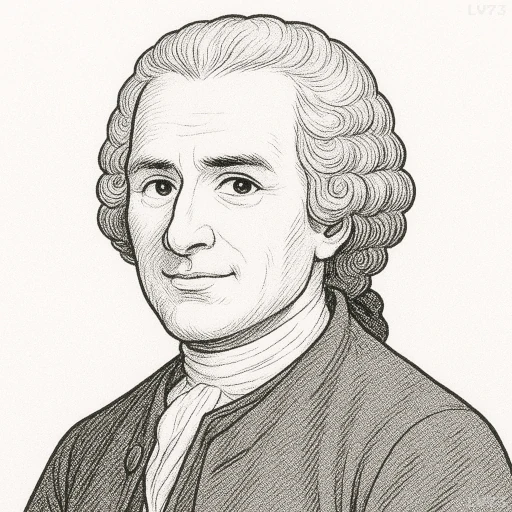“Ordinary readers, forgive my paradoxes: one must make them when one reflects; and whatever you may say, I prefer being a man with paradoxes than a man with prejudices.”

- June 28, 1712 – July 2, 1778
- Born in Geneva
- Philosopher, political philosopher, writer, composer
table of contents
Quote
“Ordinary readers, forgive my paradoxes: one must make them when one reflects; and whatever you may say, I prefer being a man with paradoxes than a man with prejudices.”
Explanation
In this quote, Jean-Jacques Rousseau addresses his readers, acknowledging that his ideas might seem contradictory or difficult to understand, but justifying them as the result of deep reflection. He suggests that in the process of thinking critically, one must often embrace paradoxes—statements that seem contradictory but may reveal deeper truths. Rousseau then contrasts the nature of paradoxes with prejudices, which he considers to be unexamined beliefs or biases that prevent real understanding. He implies that it is better to be someone who challenges conventional wisdom and embraces complexity, even if it leads to paradoxes, than to hold on to rigid, unexamined views that lack true insight.
Historically, Rousseau’s tendency to present paradoxes and challenge societal norms aligns with his broader philosophical critiques. In works like The Social Contract and Emile, Rousseau frequently questioned established beliefs about society, education, and human nature. His ideas often ran counter to the prevailing thought of his time, and he was willing to accept the discomfort of paradox in order to stimulate critical reflection. Rousseau’s willingness to embrace contradiction was part of his larger project of encouraging individuals to think for themselves, challenge social conventions, and avoid the prejudices of the time.
In modern times, Rousseau’s distinction between paradoxes and prejudices speaks to the ongoing importance of critical thinking and the courage to question societal norms. In an age of information overload and echo chambers, it is easy to fall into prejudices, accepting ideas without questioning them. Rousseau’s preference for paradoxes over prejudices encourages us to embrace complexity, uncertainty, and the deeper exploration of ideas rather than settling for simplistic or biased viewpoints. This quote reminds us that intellectual growth often involves confronting contradictions and navigating the uncomfortable tension between different perspectives, rather than accepting unexamined beliefs that reinforce the status quo.
Would you like to share your impressions or related stories about this quote in the comments section?


